Author Spotlight: M.H. Woodscourt
On our author spotlight interview this month, we have M.H. Woodscourt, who has written a number of novels in the realms of science fiction and high fantasy. We had a great talk that encompassed Melissa’s sources of inspiration, sticking points, and her experience of the indie-publishing world.
You can find out more about Melissa and her books on her website.
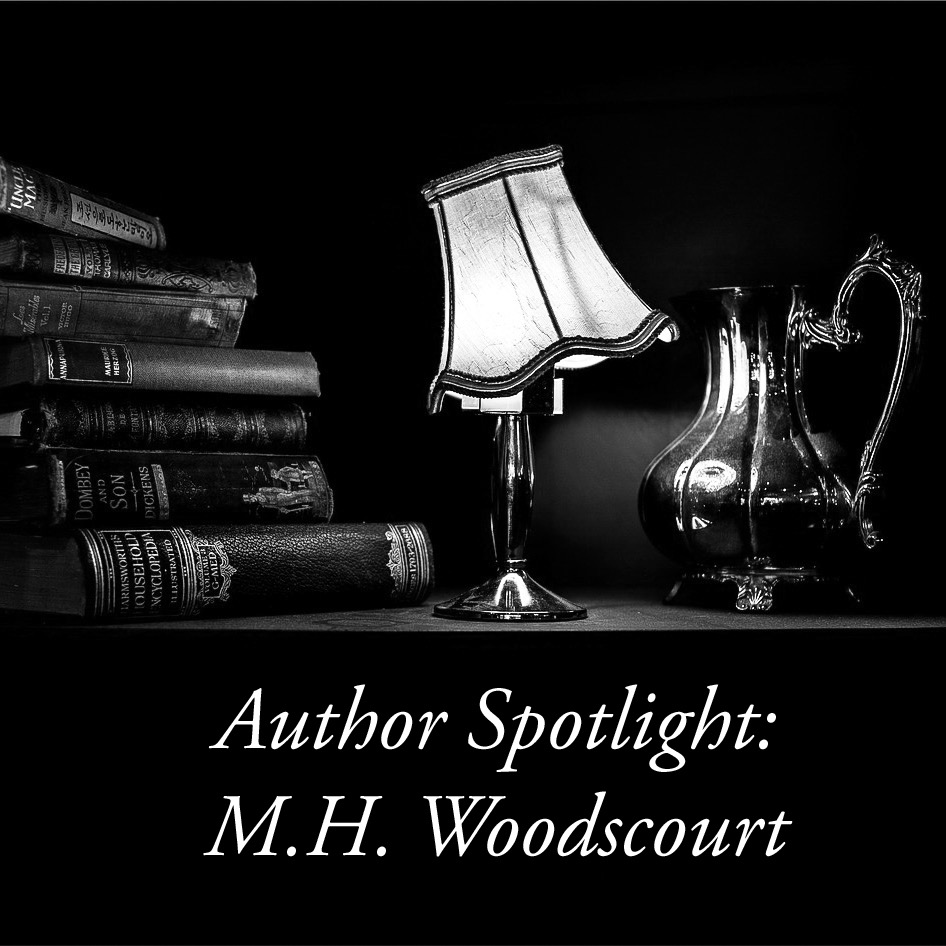
Transcript
Sarah: Hi everyone, welcome back to Dear Writer, so this week we have another author spotlight interview, and we are on to our… I’m not sure what episode we’re on to Ashley. 18th?
Ashley: Oh, the 18th.
Sarah: 18th episode. And yeah, we’re here with M.H. Woodscourt.
Ashley: Hi Melissa!
Melissa: Hello! Thank you so much for having me.
Sarah: You’re welcome.
Ashley: We’re really excited to have you on. Melissa writes young adult and adult fantasy and most of her work encompasses high fantasy and sci fi, which is really cool. It’s a bit out of our comfort zone. I don’t think either of us… oh no, you tried a little bit of sci fi once, didn’t you Sarah?
Sarah: Yes, although honestly that’s really awesome because it takes a lot to be able to do that sort of world building and I think it shows a lot of imagination so, I admire that.
Melissa: Thank you.
Ashley: It does seem like a difficult genre to work in but also really fun, because you get to build entire worlds out of just your mind, which is cool. And so maybe it’s a good point sort of to jump into. So how did you first get into writing, were you writing all these wonderful stories as a kid or is it something you developed as you got older?
Melissa: That’s a great question. Well, I’ve always been… I’ve always had an extremely overactive imagination. Especially in dreams, I have extremely vivid dreams and I wake up exhausted, so I think it was just kind of a natural transition into storytelling to try to get some of that out during the day.
Ashley: It makes sense.
Melissa: It just kind of intuitively came. I started writing short stories probably about age nine or ten. But I didn’t delve into fantasy until I was, I want to say, like 12 or 13. I can tell you the exact moment happened, I liked reading it, but it wasn’t until I watched Lord of the Rings, Fellowship of the Ring in theater.
Ashley: I understand, it’s a great movie.
Melissa: I walked out of that theater and I was like, I need to go right back in and watch this again. I literally watched it seven times in theaters and nine times on VHS when it first came out on video.
Ashley: That sounds like me.
Sarah: Yep, I’ve watched it many, many times.
Ashley: I used to have the whole beginning memorized word for word. I loved it.
Melissa: I just, I was like oh my gosh you can create entire fictional worlds like this and I’ve never looked back, I just was like I’m going to plot my first fantasy novel. And I just started working on it right then and there.
Ashley: Oh my gosh, that’s really cool. Those movies are amazing.
Melissa: They are.
Ashley: Just amazing. I watched… I always watch the trilogy over like, Christmas/New Years’ time.
Melissa: Oh same, like either… well, maybe at least once a year, maybe three or four times.
Ashley: They play marathons here every year in the cinema, so they play the extended additions back to back to back.
Melissa: The only way to watch it!
Ashley: Amazing. In like the big… we call it V-Max, like the big screen with the comfy seats. And it’s such a deal, it’s like $25 for the whole day.
Melissa: Oh my gosh.
Ashley: It’s incredible. I know. So I’ve done it three or four times now.
Sarah: New Zealand’s big on Lord of the Rings, obviously.
Melissa: Oh, I can imagine. I can just imagine! Oh, my gosh, yeah. It’s my dream to go visit, New Zealand, at least once and go see you, know how, Hobbiton and all that.
Sarah: Hobbiton’s amazing. I went there when my husband visited, back when I was still living in New Zealand. It’s really cool.
Melissa: Oh man.
Ashley: You have to do it, I went oh, just before Sarah’s wedding. No, the day after Sarah’s wedding, actually. I went with James, my husband, and a friend. And I was a bit worried that it was going to be a bit of a letdown because you never know how these things are going to be, but it was amazing.
Sarah: You kind of think, oh it’s probably, you know, worked up to be more than what it is, and you’re paying quite a bit to go into it, but it is definitely worth the money, I would say.
Ashley: You have to come now.
Melissa: Oh my gosh. I’m… it’s happening, I’m going. I want to go see! I gotta go to middle earth you guys!
Sarah: Soon as Covid is over, it’s like, hopping on the plane!
Melissa: I know.
Sarah: So, who are some of your favorite authors and what writers inspire you? I guess we’ve kind of gone over a little bit of this with Lord of the Rings but are there any other authors that inspire you or?
Melissa: So many. Off the top of my head, some of my favorites, of course J.R.R Tolkien, since I, you know, I did immediately go read those books, right after I watched the first movie, I’m like, oh! I went to the bookstore, bought ‘em all, read them, read them again. But I also love, a lot of the classic authors, CS Lewis. And Ursula Le Guin. I love Lloyd Alexander. One of my favorites, she’s not very well known, is Lorna Freeman. I love her world building, I love her characters, I love her writing. She’s just, she’s top notch and she’s hard to find but so, so good. And then, of course, I like Brandon Sanderson quite a lot, too. Unpopular opinion, I prefer some of his earlier works to some of his later works, but that’s just me.
Ashley: Like just my opinion.
Melissa: But his, his magic systems are out of this world good. I envy his skill.
Ashley: And so I guess that’s going to be hard making all of these rules and things. Which, Sarah and I haven’t really touched in fantasy or anything like that so it’s all very set in the real world, or a slight, you know, twist to the real world, so we haven’t had to deal with that kind of stuff before. But I can imagine it could be quite challenging and then not contradicting yourself, later on, with certain points accidently.
Melissa: It was really tough in the beginning, as I’m just like, what? How do I even make this work? But I find that if you actually pluck from real life and just give it a magical spin. You get that dimension that you don’t normally like, get, if you just… I don’t know. At least for me that’s how it is.
Sarah: Yeah, no. That makes…
Melissa: So like, real life experiences and all that just contribute. I actually really admire people who can write in the—in what I call the mundane world, our world, and make it actually interesting. Because I can’t do that.
Sarah: No, that makes total sense. We had a little bit of that with our current book I think. Well, we’re still going to have to actually… we’ve plotted it out, but we haven’t done it yet. Where we’ve got a situation with time traveling to historical fiction. So, we had to work out the time travel rules, but it’s a little bit weird when you sit down you’re like, okay. Well if two people are time-traveling, then they need to do it in the exact like same manner. So are they going to be wearing clothes, are they not going to be wearing clothes?
Melissa: Right.
Ashley: Yeah, stuff like that. What goes back in time? Yeah, strange things like that.
Melissa: I’m working on something that’s kind of time-travel-ly right now in a fantasy setting and fortunately I’ve got like this magic system that makes it fairly easy to implement, but time travel is tricky.
Ashley: Yeah. Very tricky.
Melissa: Oh man.
Sarah: We’ve only got like, well so far, one way time travel. But we have to sort of work out… oh we had to work out, you know, under the rules, is it going to affect the future? Is it not going to affect the future?
Melissa: Right.
Sarah: Or is it going to make the future, like, you know?
Melissa: Exactly, yeah. Is it alternate dimension, is it… I know, I know. And there’s so many different theories and it breaks down if you think about it too hard, pretty much no matter what. But it’s fun anyway.
Sarah: Yeah, exactly. But so I…
Ashley: It makes for an interesting book.
Sarah: I think at least we have a little bit of understanding of knowing how to create rules, but just knowing like, from that one experience, I can just imagine trying to put that into well, not every sort of experience of the characters but, like a lot more sort of multifaceted rules to building your world would be quite challenging.
Melissa: Right, well to be honest, I’ve made it a little easier for myself, then I think some authors do, and I know that it’s actually really popular to do now, but when I was doing it, I had no idea about creating like this extensive universe, where all of my books, take place in the same universe. I just did that kind of intuitively and I’ve done it since I was 13 years old. So for me, it’s been a slow building process, I had this foundation. So it hasn’t actually overwhelmed to me at all to kind of just build on these building blocks I already had. And I think that’s just honestly kind of how I feel like if people ask me, how do you do your world building? Just start one piece at a time. Honestly don’t overwhelm yourself and you don’t have to make it actually that complicated. For me, I do character driven stories. The plot, I feel like grows organically Around the characters and their motivations and that kind of thing, and if I’ve got the basic world rules and the, and these fleshed out characters, then everything else just builds itself just intuitively. And so I don’t worry about it, I don’t feel overwhelmed. I used to, but I don’t anymore really so.
Sarah: That’s really cool. I think having sort of the one kingdom where, or like one world where everything happens and then you just keep building on it, it really gets the readers involved too, because then, you know, that you follow the thread of like just this one world that’s happening. Through like multiple different stories, yeah.
Melissa: Yeah. And I have a world that I build multiple stories on. I actually have, it’s an entire galaxy—actually it’s bigger than a galaxy even—where I have some worlds that are more sci fi and some that are more fantasy and they take place, they actually have the same rules, but they apply it differently so I suppose technically it’s science fantasy not science fiction.
Sarah: Yep.
Ashley: Right.
Melissa: There is my lovely little middle ground cheat.
Ashley: I like it blending genres.
Melissa: Yes.
Ashley: It’s good.
Melissa: I’m all for that.
Sarah: I like blending genres, too.
Ashley: So at what point did you decide that doing writing one, more seriously, two, I guess more full time, and three, when it was you realized it was something you really, really wanted to pursue? When did this, you know, idea sort of come? Cause for a while you’d be just writing stories as a, you know, as a teenager like Sarah and I did too. Writing stories you like, oh, maybe one day. What made you take the plunge?
Melissa: Man. I really think it again, it goes back to when I watched Fellowship of the Ring in theaters. I just, I was like, people can literally make up worlds, and get published, and make money on this? I mean, you know, not that there’s been many authors that can make it full time doing this for a living, but I was like, just watch me. I’m gonna figure this out, I’m gonna try, I’m going to see how far I can go. And I’ve, I’ve always been so disciplined to that I, I took it seriously at age 13. I was like, this is something I’m going to do. Everybody was like, what do you want to be when you grow up? And I was like, I want to be an author. So I finished writing my first novel at age 17. That was largely due to my creative writing teacher. She found out I was writing a novel. And I had dabbled in it a lot, but I was like I’m going to finish this one, she was like, okay I don’t want you to do any of the in homework, in class homework assignments. None of that. And I want you to spend 20 minutes a day on your novel and then turn it in as your final.
Sarah: That’s awesome.
Ashley: That’s really cool. Oh my gosh.
Melissa: She was so amazing. We’re still in contact, she’s an indie author. It’s phenomenal. And she, she just really helped me to find the focus and just writing 20 minutes a day I saw my progress, and it encouraged me. And I’ve never looked back. I’ve written 17 novels since then—
Ashley: Oh my goodness. That’s amazing.
Melissa: —and hit over a million words in just my fiction novels, not counting anything else. And I look back and I’m like, I’m really doing it, it just came from, this is my goal.
Ashley: Yeah.
Sarah: Yeah.
Melissa: This is what I want to do.
Ashley: So amazing that you had a teacher that was that supportive, and was just like, hey you’re doing this thing and you know what? It basically is the whole essence of creative writing.
Melissa: Right?
Ashley: She’s like, just do it. That’s so cool.
Sarah: Did you find when you were that age, that… like did other people take you seriously or did you have any issues with people being like, oh she’s… she’s doing this now, but it’s not gonna stick. Because I know that I suddenly had some of that.
Melissa: Yeah. It really went one of two ways. My family’s always been really supportive, they’re like, as long as you don’t check out from the real world, you come out to eat, do your chores things like that, you’re good. But I’ve had a lot of supportive friends, but I have had people, okay that’s nice you want to be an author, but what about a real job. And what about a real career, what are you really good to go to school for, for what are you really going to do with your future? And I’m like, I’m really going to be a writer. I’m really going to make this real, and that doesn’t mean I’m not going to work a job, and pay my bills, and do all the other things that I need to do as a grown up. But so I think it was probably a 50:50 split, but I think people have really come to understand years later that, oh she’s for real this is, this is legit.
Sarah: Yeah, yeah.
Ashley: Did you end up going to college or anything, what did you study?
Melissa: Yeah, I’ve done… I went to a school and did a lot of creative writing. But I actually found that creative writing classes, I don’t recommend them.
Ashley: Okay.
Melissa: Generally, because they burn you out.
Ashley: Right.
Melissa: You’re trying to write somebody else’s way and you can’t find your own voice, unless you have a creative writing teacher like my high school creative writing teacher. So I actually… I’m just like no, you know if you put in the hours and you write your own way, you’re going to get a lot further just putting in the work and reading and, and all that, then you are getting a piece of paper saying you can do it, and then being too burned out to do it. So I actually don’t even put credentials on any of my bios or anything because to me that I felt like it didn’t do anything for me.
Ashley: That’s interesting because I was… I’ve been considering it recently, like should I do some classes, should I not, you know, would it help? It’s interesting to hear you say that maybe it doesn’t help too much, might be… yeah.
Melissa: Most of my fellow writing friends have quit writing because they got burned out. And that was sad.
Sarah: I think it depends a bit on the course as well, like, I feel like especially university courses you’re more likely to find like those really literary fiction writers, rather than like more commercial fiction, which is more what we’ve been doing. And I think that’s like a totally different field and focus on totally different things.
Melissa: Yes.
Sarah: I feel like that a little bit with entering, like I’ve entered a few short story competitions before. And then, I’m always a little bit dubious about them, because when, especially when they give me, you know, they give you a prompt or whatever. And you kind of look at the prompt and you’re like, oh, I think they’re wanting like an airy fairy happy story with, you know, this happening or whatever. But, you know, and they’re also looking for that literary flair. Whereas mine’s very commercial, action, dark, just like the opposite of what they’re looking for.
Melissa: For me, it’s like if you find some things putting you in the box, get out. Get out of the box. If it’s helping your creativity to flow, keep going. And that’s really just my guideline because I’ve done some amazing courses both online, at school, different things that have just really pushed me and stretched me in a good way. And then there are other times I’m like, I feel like I just… I just ate cardboard. Just know what you’re doing before you spend money, I guess that’s my advice.
Ashley: I mean that’s, that’s good advice. Yeah it’s really interesting to hear you have that advice, because you know, sometimes I should I do one? Will it make me better? I don’t know. I guess you never know right, maybe it will.
Melissa: Sometimes you’ve just gotta take that plunge.
Ashley: Probably just, you know, forget about it for a while again. Continue on with what I’m doing. Practice more on our own books to get better.
Melissa: Yeah I mean I really think the best way is to just organically learn. It’s like, I worked for this lady, and she was like, so like did you… are you getting your masters or anything in writing or anything? And I was like, nah I’m putting in my intern hours writing my books instead. And she’s like, oh that’s exactly what you’re doing.
Sarah: sort of speaking along those lines, is there any resources that you did turn to when you were sort of first starting your novel writing, or?
Melissa: Yeah. Well you know there’s a lot more resources available now than there were back, back then. Thank goodness! It’s, I feel like my learning never stops. If I feel like I’ve got it all figured out that’s when I’m going to start regressing. I’m learning something new every dang day. And I love it. So, if I were to… let’s see. Really think about the best writing, of course, if you’re reading a lot of your genre and writing, those are the best things. But I also found one of the things that worked really well for me was serializing one of my novels, so that people could give me a real time feedback, chapter by chapter. It thickened my skin and stuff like that, so that was, that was actually really fun. And also, I recommend Strunk and White Elements of Style. It’s a tad old fashioned, but it’s so good for just basic grammar that a lot of people I don’t think understand. Like it talks about the difference between, you know, nauseated versus feeling nauseous. It just… you know. It just talked about a lot of things in conversation we don’t understand the difference, and so it was helpful for me. I used that in high school and I still recommend that a lot. Another one of my favorites is Show Don’t Tell by Sandra Girth.
Ashley: Okay.
Melissa: It’s just a short pamphlet on Amazon, and when I was really struggling with the concept of how to show and not tell, like you hear that 1000 million times.
Sarah: Yes, yeah.
Ashley: Yeah.
Melissa: And it’s like, what does it mean for me? And for some reason that pamphlet just… it’s like it was a key in a lock and it opened the door, and all this stuff just suddenly made sense. And I went through a novel in the next week and I cleaned it up and just made it… I transformed it. And I was like, oh my gosh, this actually is real, I can actually like apply this now, it was one of the most exciting moments of my life.
Ashley: Like I get it, it has finally happened, I understand.
Melissa: Slow learner, I think? But, it’s exciting.
Ashley: I’ll have to check that out. It’s always interesting getting recommendations from other people. I remember I got Elements of Style out from the library once but then someone requested it, like the next day, and I was using my university library so I had to give it back the next day, so I was really sad. So I might have to go get it again.
Melissa: Oh, another one, um, The Emotional Thesaurus in fact their entire series of books is really helpful, it’s like, I use that in conjunction.
Sarah: This is the one that I was talking about, I think, a little while ago, Ashley. The one that I still want to, want to look at. I heard about it on a podcast and I was just like, ah. I really need to get this. An Emotion Thesaurus.
Melissa: I use it like, every day. I think it’s one of those things that every writer should probably put in their toolkit.
Ashley: Seems like it would be very helpful.
Melissa: Extremely, at least for me it’s extremely helpful.
Ashley: Yeah. Well we… I was talking to Sarah in um, another podcast about how I often really struggle to keep thinking of, you know, creative ways to describe how someone’s feeling or what they look like again and again and again without it becoming you know, obvious that you’re reusing things so that would be so helpful.
Melissa: Yeah. It helps me a lot. Yeah.
Sarah: I’m just gonna insert in here just for the listeners, that’s actually next podcast I think that we talk about that. Because we recorded it slightly ahead of time. So, if you’re listening back and you’re like, I don’t remember them talking about this, that’s why.
Melissa: Oh that’s funny. You guys are time traveling right now.
Ashley: I know. So do you, do you juggle a full time job or anything, while you’re writing or are you fortunate enough to be able to spend all your time writing books?
Melissa: So I’ve recently been doing… well, until recently I’ve been doing the full time day job, full time writer gig combined, but now I’m lucky enough that I’m working part time. And so I’m still doing the full time writing thing and trying to treat it like a full time job as well, but yeah I find that it’s… I’m able to do it, I’m able to make it work, and I’m hoping that soon I’ll be able to just step into full time writing alone, but I do like my other job, so.
Ashley: I know the feeling.
Sarah: Yeah, sometimes it’s nice to have the, have the mix. But yeah, I mean 17 books completed—it sounds like you’re well underway, which is really awesome. Do you want to tell us about your current work that you’re doing. As much as you can without giving… you don’t have to give away like any details or anything, but…
Melissa: That’s right. So I just released the second book in my young adult high fantasy Wintervale duology. Try saying that ten times fast. So, that one just got released, of course by the time this podcast that comes out, about a month ago. So that one is now completed, which makes me feel pretty happy, it is, in essence, about a young man who in a kingdom where magic is against the law, he decides to break the law to try to save his older brother, who is dying. And the consequences of having to do that make this hard, but right decision and everything kind of spirals from that. So that’s the basic gist of that. So that what just came out, and then I’ve got some, another one that’s coming out very soon, so.
Sarah: That’s really cool. I think it’s really cool having books about sort of the sibling relationship as well, because you don’t really get that as often as like, you know, the sort of lover relationship. And I think it’s really interesting seeing those deep connections build within, you know, friends and siblings. So that’s really interesting and especially with the magic kind of coming into it as well, very exciting to read.
Melissa: It’s pretty fun. I think I’m drawn to writing about familial relationships, because growing up, we… I came from military—like my dad was a marine. And then, when he left the military he still travels quite a lot, I guess, he just developed this need to travel and we kept going so I growing up, I moved over twenty times.
Ashley: Oh my goodness.
Melissa: So my best friends for my six siblings.
Sarah: Mm hmm.
Melissa: So for me that’s the connection I can write best is relationship between siblings, relationships between parents and children, and so that’s, I guess that’s why I’m drawn to kind of write more of that in my fiction, so.
Sarah: That’s really awesome, yeah. I have three siblings so I sort of… and Ashley has two.
Ashley: Yeah. Two sisters.
Melissa: Oh, that’s fun. I love them. You love them, you love to hate them. It’s good.
Ashley: Exactly.
Sarah: So, do you plot all of your novels or are you a panster or somewhere in between?
Melissa: I’m the plantser. I’m your little in betweener. My first, several novels, I tried to plot them, and I would outline every chapter. And I have found that that doesn’t work very well for me because I get bored writing it, because I already know what’s coming. So I have to keep on my own toes just be like,9 I don’t know what’s around the corner and then it’s exciting and I can keep going. I’ll have little bullet points, and I’m like, this is my tentative goal, but if the characters change it up for me that’s even better. Let’s just… just throw it at me we’ll figure this out. We’ll plot later.
Sarah: Totally understand that. Our characters like to do that too.
Melissa: You gotta love it, they’ve got a life of their own.
Sarah: Yep.
Ashley: We often have to have a situation where there’s some sort of key thing that needs to happen, but your characters are too stubborn and there’s no way you can make them do that thing. So you’re like, well I guess it we got to change that now don’t we, because I can’t get them to do this.
Melissa: I guess it’s a good sign, though, because if your characters like, nope, don’t want to do that, you’re like, oh you really are your own person, good for you!
Sarah: Basically.
Melissa: I made this thing? This person came from my head?
Sarah: I know. It’s like they just get born from your head and then they go AWOL. And you’re like, okay, fine.
Melissa: So fun.
Sarah: So fun.
Ashley: Are your books in first person, are they third or I guess omniscient?
Melissa: So I do limited third person perspective, generally, but I… sometimes they’ll have multiple perspectives. Well, okay, one of my series is first person, but he and his whole story is crazy, it was started as a, as a like a writer’s block bulldozer and it went out of control. And that’s the one I serialized, so I have published it, but it’s old and it’s got its flaws and I love it, but it is what it is.
Sarah: Yeah! Talking of publishing, so how have you found publishing? Did you start publishing recently or?
Melissa: That’s a good question. So my… like I said, the one I serialized actually released it back in 2015, just for the readers that had followed its journey on the website where I posted it back in like 2009. So it’s pretty old, but I went ahead and kind of cleaned it up and then threw it out there into the abyss. But I didn’t try to promote it, or anything I just like here for the fans, whatever. Well then the pandemics struck, and I was bored.
Ashley: Fair enough.
Melissa: And so I rereleased this old story and just, under my pen name, and… but I’m going to clean it up first so because I need to take more pride in it, because it’s, it helped me get where I am. So I went ahead and released that, and learned a lot back to the beginning of last year of March. And I’m like oh, I made a bunch of mistakes, so I decided to research it. And, as I was researching covers, and all this stuff, formatting of interiors and all that I was like, I kind of like doing this. And I’ve been trying to get traditionally published for, you know, eons. And—
Ashley: We know that struggle.
Melissa: —I actually, I met with an agent from New York in person—I won the lottery to go—and I pitched my book to him. And he was like, you’re a good writer, you’re really good but high fantasy is dead and paranormal romance is dead, so…
Sarah: You’re like, dead to you!
Melissa: …good luck. And I’m like, uh, I don’t like that answer. So I decided to just… that was like the final straw for me, I was like, no. I’m just going to do this my own way, I know there are other people out there who love it as much as I do. So I’m going to write for them, I’m not going to write for an agent or a publishing house. I’m going to write straight to my audience, and so I have just immersed myself and I’ve loved it. I’m still learning, I’m still making mistakes. Marketing is hard, it’s so hard, but it’s so rewarding and I really am like, I’m never going to look back. I really don’t think I am. At first I was like, uh, I’ll just put my toe in the water and see what happens, but now I’m like, no I love this, I thrive on this, this is helping… this is my dream coming true. So it’s fun.
Sarah: That’s so cool.
Ashley: I’m glad it’s fun, or at least fun for you, because Sarah and I are about to start that journey.
Melissa: So exciting.
Ashley: We’ve been toiling in the whole traditional publishing thing for a while. I think we have a similar problem with the genre, I think that’s our main issue.
Sarah: Yeah it’s like, I’m sorry it’s not in vogue.
Melissa: What is you’re genre? What is your genre?
Sarah: Ours is about a war, a fictional war. It’s like world war three, but it’s also based primarily in reality and it’s like oh, no. I think a lot of publishers are scared to market that where they’re like, oh people don’t want to read about wars in the real world.
Melissa: Yeah.
Sarah: I think there is a market for it.
Melissa: I don’t really… I don’t want to, you know, there’s a there’s definitely a place for traditional publishing. I have the deepest respect for people who can make it into that world, but I feel like a lot of those publishing houses are honestly 10 to 15 years behind what’s really happening.
Sarah: Yeah and I think it, like I understand from a business perspective, you know, you can’t just hedge your bets and… like you, you tend to follow the trends, because that’s what has been proven to sell. And you don’t want to go under, so obviously you’re going to choose what you think is going to sell. So, these ones that are a little bit riskier, then you’re not going to take the leap for… which is totally fine, but yeah. We will probably end up going the indie… well, we are going the indie route now.
Melissa: That’s awesome. Congrats because it’s, I find it worthwhile. I mean what I have loved to be traditionally published? Yes. Do I love the fact that I get to make my own choices, choose my own cover for good or ill? Um, yes! I’m also actually going to be releasing the audio book version of The Crow King, the first book of my Wintervale series, probably in April. And I got to choose…
Ashley: That’s exciting.
Melissa: I got to choose the narrator! I got auditions for my book.
Sarah: That’s awesome.
Melissa: I was listening to these people reading my book, I’m like, what?
Ashley: Like, it’s happening!
Sarah: That’s, that’s insane and it’s awesome. You’re like, not you, not you. I like your voice.
Melissa: Exactly. I just feel like, I’m like okay, I might have a bias, but I also know the vision for my book. And so it’s just kind of fun to have like my finger in—well my whole hand in the pie. I don’t have a finger in the pie, I have my whole hand in the pie.
Ashley: Is there any aspect of the… your endeavor into indie publishing that you found the most difficult?
Melissa: It’s honestly just being seen online, just being a relevant voice in the clamour of the internet. I’m like, I know I have something to say, we all have something to say. It’s just saying it in a way that’s resonant with people. And, you know, finding my people. You know the people that that get me, and that I get, and but I mean I love the networking… like this, this is fantastic what you’re doing is amazing, I love it!
Sarah: This is so fun, we love having you on.
Melissa: So fun! And like, I get nervous. I get severe anxiety over a lot of things.
Sarah: We do too, we do too.
Melissa: I’m like, okay. Stretch, stretch, grow, grow! So I guess in a way that’s also what’s hardest is stretching and growing. But it’s also the most rewarding, so it’s totally worth it.
Sarah: Definitely. So I think we’re probably sort of that point we’ll wrap this up. Did you have anything else, though, that you want to talk about or?
Melissa: I… well I just, I guess, I could plug my next book that will be out in the late spring?
Sarah: Yep!
Ashley: Yep, definitely plug your book. And your audiobook!
Melissa: So my next novel is going to be what is most likely a standalone, right before I launch my long series, and so this next one is also young adult high fantasy. And it’s called Crownless, and I’ll probably be doing like a cover reveal hopefully when my cover artist gets back from his hiatus, and we’ll go from there. But I’m hoping for like a May to June release. This is a fun story for me, this is one of my earliest story concepts so it’s very dear to my heart. It’s about an outcast storyteller who’s telling fairytale type… fairy stories I should say, in a kingdom that’s at war. And the Kingdom has banned fairy stories from being told, but he’s telling them anyway. And this young spoiled prince gets stuck journeying with him through these series of circumstances and he doesn’t, he scoffs at these fairy stories, but it turns out that there might actually be some truth. That these fairy stories might actually be real. And they’re looking for the way to get into this fairy kingdom so it’s gonna be fun and magical.
Ashley: It’s cool.
Melissa: Yeah. So that’s that.
Ashley: So you said that’s coming out in the spring?
Sarah: You said hopefully May, right?
Melissa: Hopefully May, June. Yep.
Ashley: Sorry I was doing the conversion because we’re opposite season so I was like…
Melissa: Oh yeah, that’s true I was thinking about that too. So May/June—
Ashley: Okay, there we go.
Melissa: —Spring/Fall.
Sarah: Yeah. Where can… where can people find you if they want to know more about your books or purchase some of your books that you’ve already written, or?
Melissa: Okay, so you can go to my website, which is mhwoodscourt.com, pretty straightforward. You can also find me on social media, I am on Instagram and Twitter under the handle @woodscourtbooks. I’m also on Facebook, you can find me just search M.H Woodscourt, and my books are accessible actually across most digital stores, I release them Amazon, they’re on Barnes and Noble, Kobo, Google Play, Smashwords. You can just go to… if you go to my website, you can find a link to all of those options, so you can find exactly what you like for your preferred reading platform.
Sarah: Cool, I might actually have to have a read, I mean it’s gonna be on my my wishlist of books. It sounds really interesting.
Melissa: Oh my gosh that would be amazing, thank you.
Sarah: Did you have anything that you wanted to round off with Ashley, or?
Ashley: Yeah I think just a big thank you to Melissa for coming on and telling us all about your journey on how you got to this point, and also it’s really interesting hearing about all of your books, so many books that you’ve written, and I look forward to seeing what comes out in the future. Sarah and I have talked about possibly next year catching up with everyone that’s been on our series for just like five or 10 minutes and having them, you know, give us an update about how things have gone for them, since we chatted to them last, so I think that’ll be something that will be exciting.
Melissa: I’d love to.
Ashley: Cool.
Melissa: That would be awesome.
Sarah: That would be really cool.
Melissa: I just want to say thank you again, Ashley and Sarah for having me on today, I really appreciate it.
Sarah: No problem, yeah.
Ashley: We enjoyed having you on.
Sarah: We’ve really enjoyed it.
Ashley: Feel like it’s been a very fun conversation.
Sarah: Definitely. So what are we doing next time Ashley?
Ashley: Right, so our next episode is another one of our talking shop episodes where we chat about the books we are currently reading, both for fun and also some of the resources that we’ve been using to try and help better our writing.
Sarah: Okay, and if you guys want to be on an author spotlight like Melissa has just done, then please contact us on lindersoncreations.com, hover your mouse over the podcast button and you should see ‘Be Featured on Dear Writer,’ has just a little form for you to fill out which helps us know more about you and you know we’d love to have you on the show so don’t be shy.
Ashley: Hope everyone has a good rest of your week and happy writing, everyone.









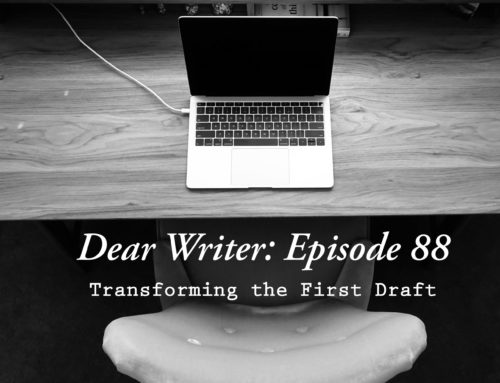
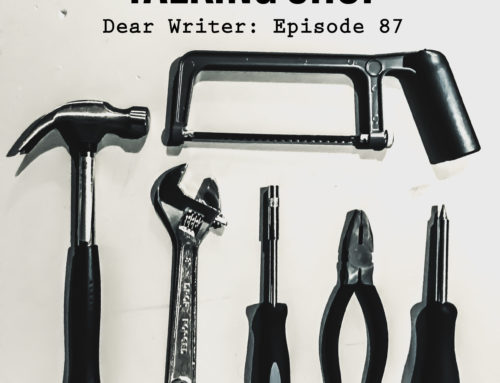

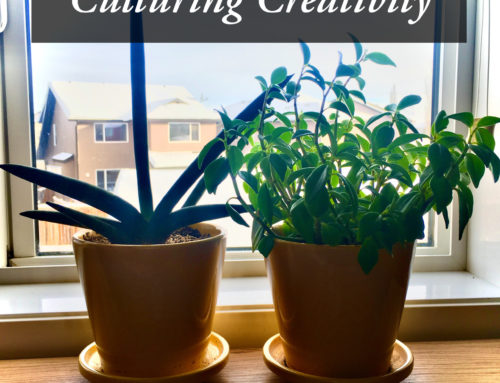

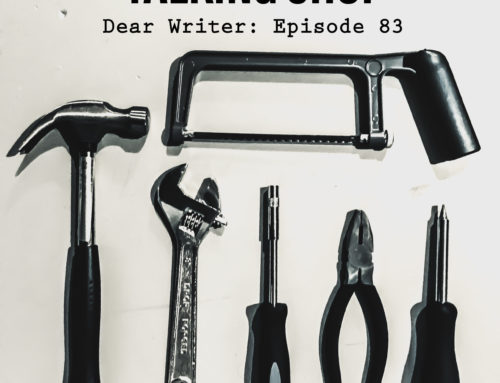


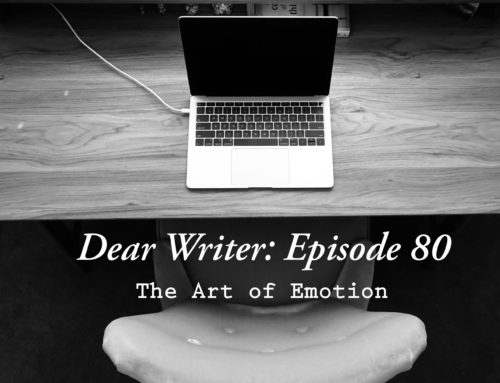
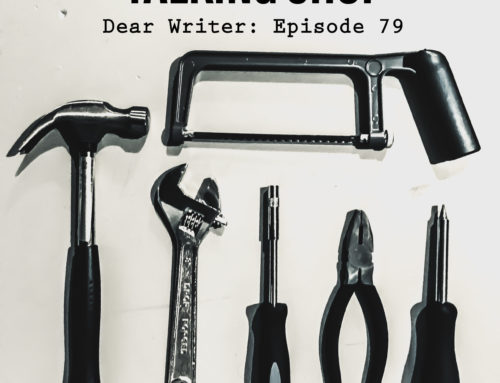
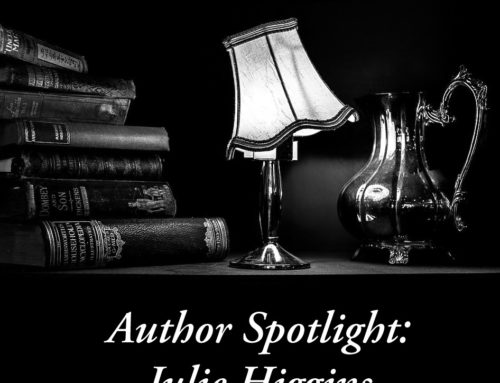
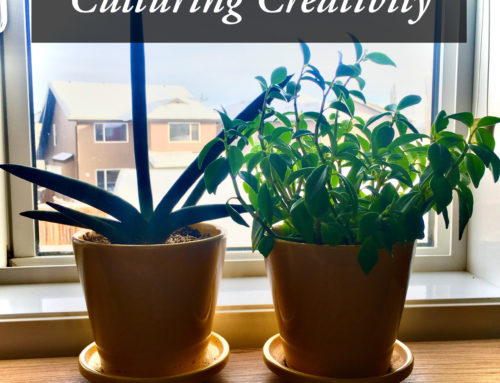
Leave A Comment